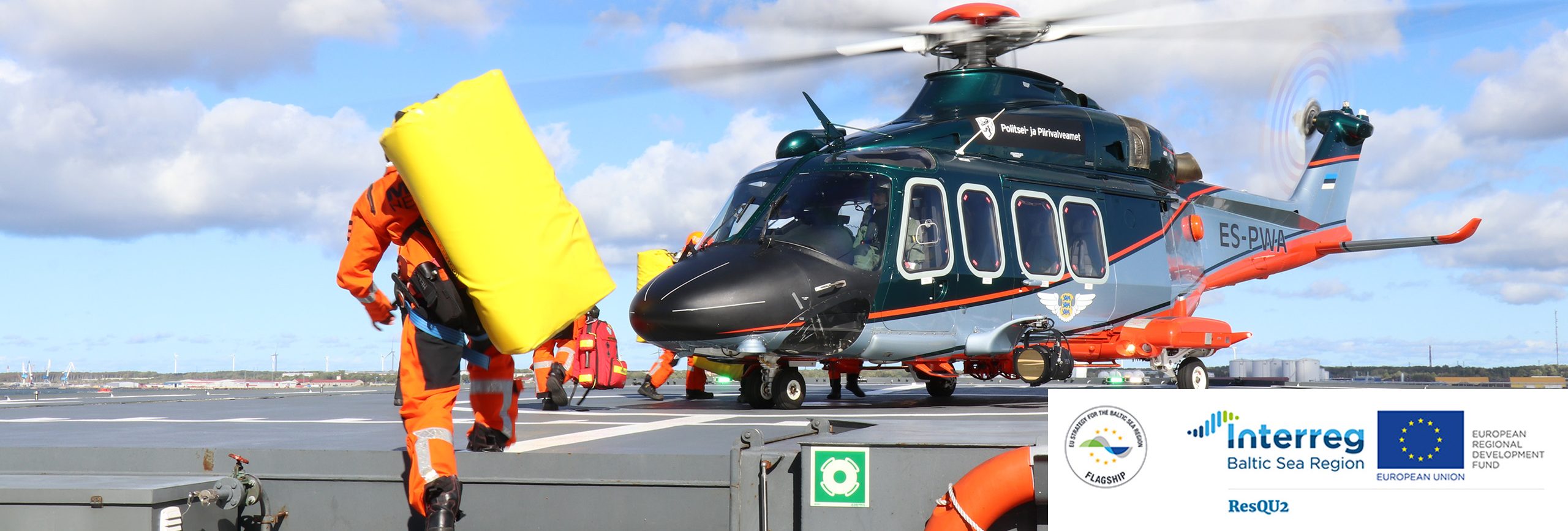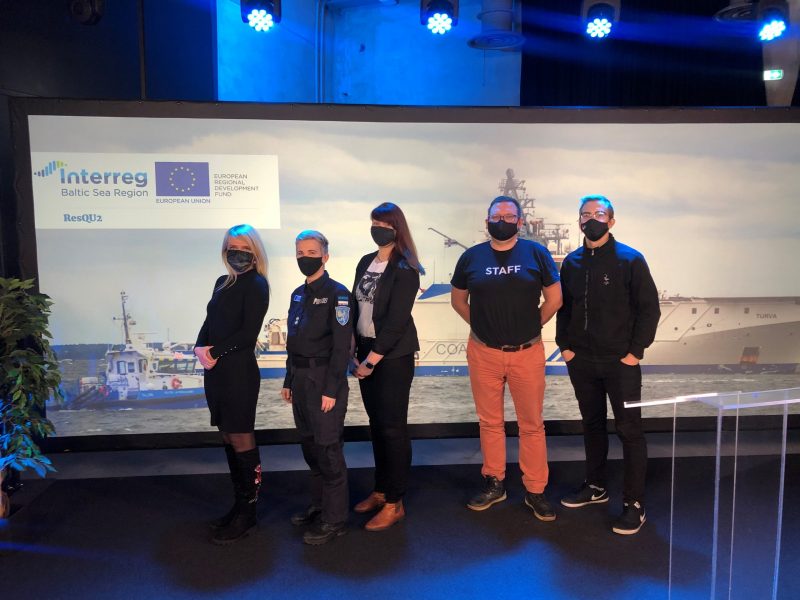The ResQU2 webinar, held on 17 February 2021, on Maritime Rescue Operations approached this topic by taking a look at the current preparedness situation in the Baltic Sea Region and by discussing the role of policy making bodies in giving direction to future actions. The webinar was hosted by the Estonian Police and Border Guard Board.
The webinar was opened by Marge Kohtla, Estonian Police and Border Guard Board. She described what the day will bring. The objective of the webinar was to have rescue experts and decision makers jointly discuss what is the planned direction for the maritime rescue operations in the future.
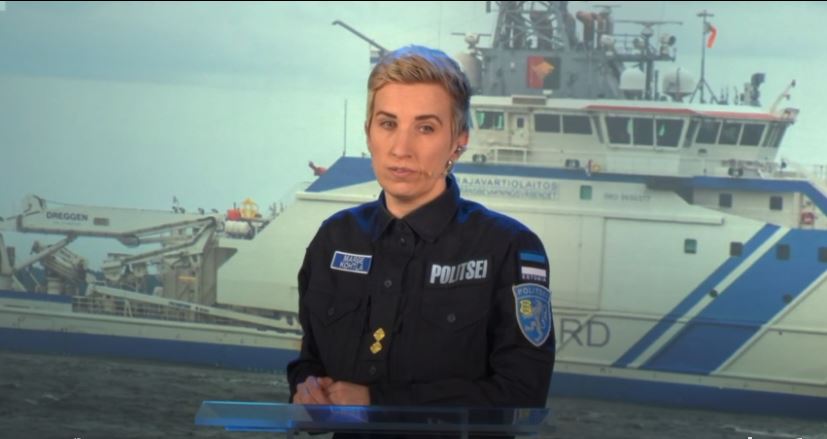
Margarita Golovko, representing the Estonian Ministry of Finance, highlighted the main objectives of the future Interreg BSR programme. She has good insight as she has also a seat in the Joint Programming Committee preparing the new programme. She brought up the many ways how the new Interreg BSR Programme will support the development.
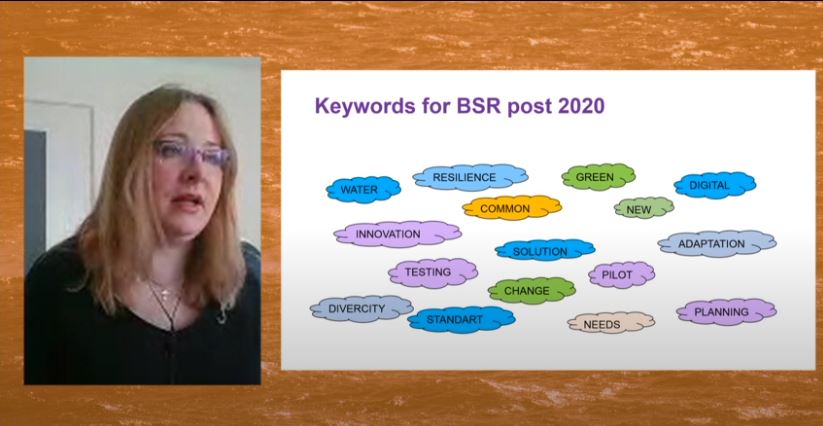
Jonas Westerberg, Swedish Coast Guard, has led the work towards joint coordination of resources in the Baltic Sea Region within the ResQU2 project platform. The idea was to pilot joint management with Search and Rescue (SAR) divers. Some weeks ago in a meeting organised for SAR divers of Baltic authorities, we decided to go forth with this form of cooperation. The “official” start will be the meeting scheduled for September 2021. ResQU2 is preparing a policy paper to get further support for the joint management of resources.
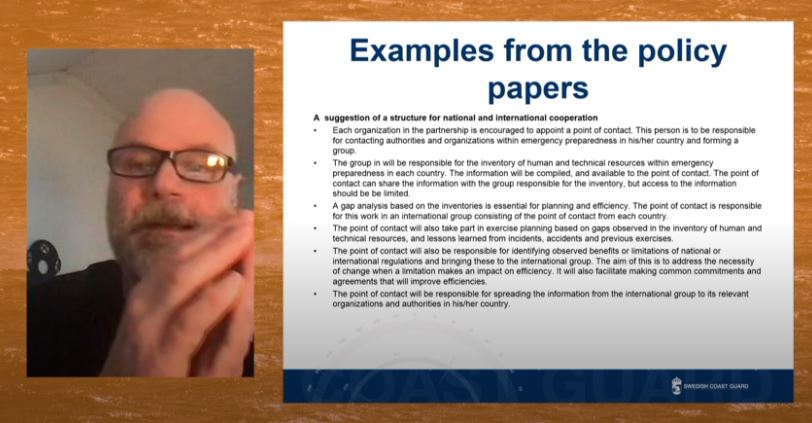
Janusz Gąciarz (below)& Andriy Martynenko, EUSBSR Civil Security, were invited to the webinar to tell about the Policy area Secure and how it supports the development in the Baltic Sea Region.
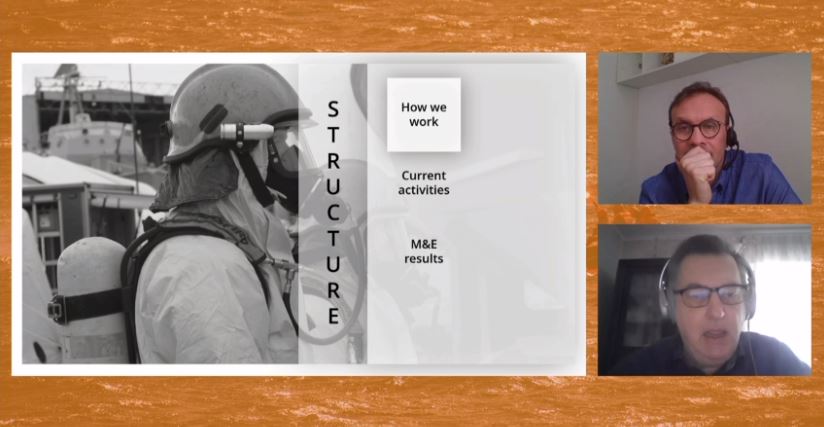
The International Maritime Rescue Federation (IMRF) is an international non-governmental organisation working to develop and improve maritime search and rescue capacity around the world. It is also improving maritime SAR capability worldwide. CEO Theresa Crossley attended the webinar to tell about their work and how their share SAR lessons. The organisation is occupied with projects as well, such as #WomenInSAR to encourage women’s participation in maritime SAR, and #pandemicresponseguidance currently needed.
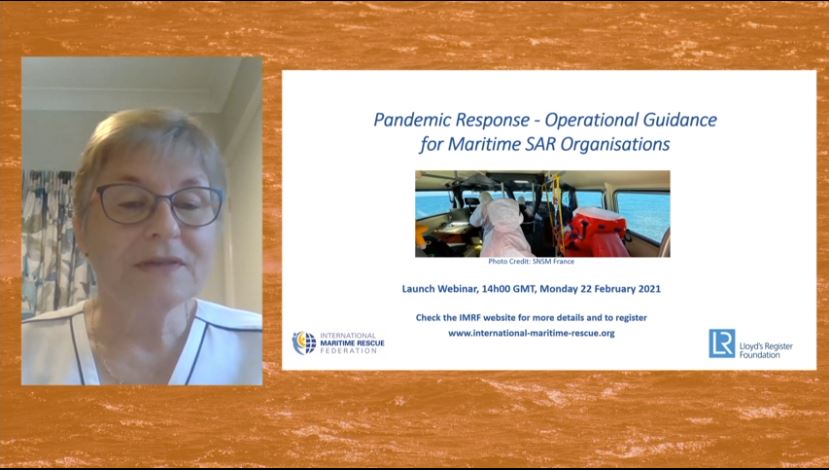
Estonia has set a target to develop their SAR capacity in the coming years, emphasized Marit Mätik, Ministry of Finance of Estonia. She presented the recent development, achievements, the existing challenges and future plans. She emphasised that Estonia very much values cooperation within the Baltic Sea Region.
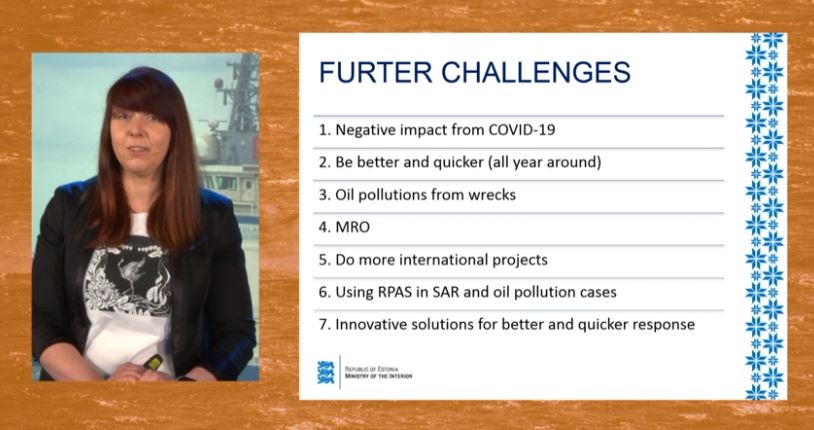
The ResQU2 project platform started its journey in October 2018 although our cooperation started long before that, already during our regular projects’ activities. The aim of the platform is to enhance maritime safety and improve preparedness in the Baltic and North Sea regions. This path is soon coming to its end as our 30 months are up. We will conclude our achievements in the ResQU2 Final Conference taking place on 17 March 2021. Surely this cooperation will continue in one form or another and the built networks will support these regions in the making the maritime rescue operations more safe.
The webinar attracted over 90 participants from organisations, such as rescue authorities, ports, rescue services, ministries, NGOs, and educational institutes. These professionals represented twelve different countries, even countries across the Atlantic Ocean. The event was moderated by Marge Kohtla, Estonian Police and Border Guard Board, one of the ResQU2 partner organisations.
